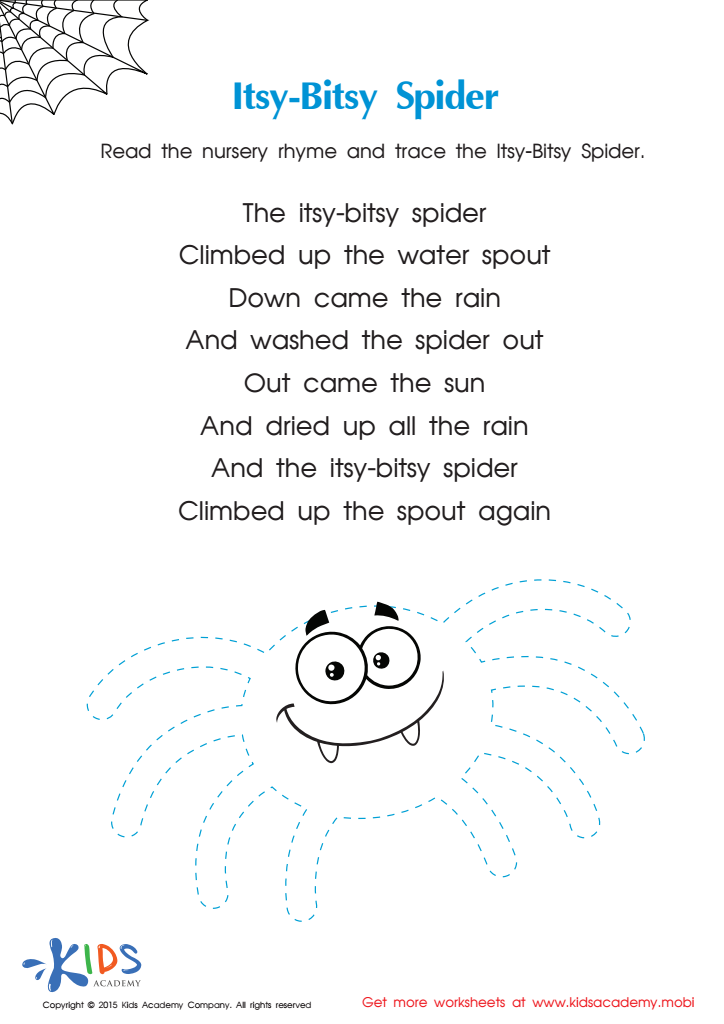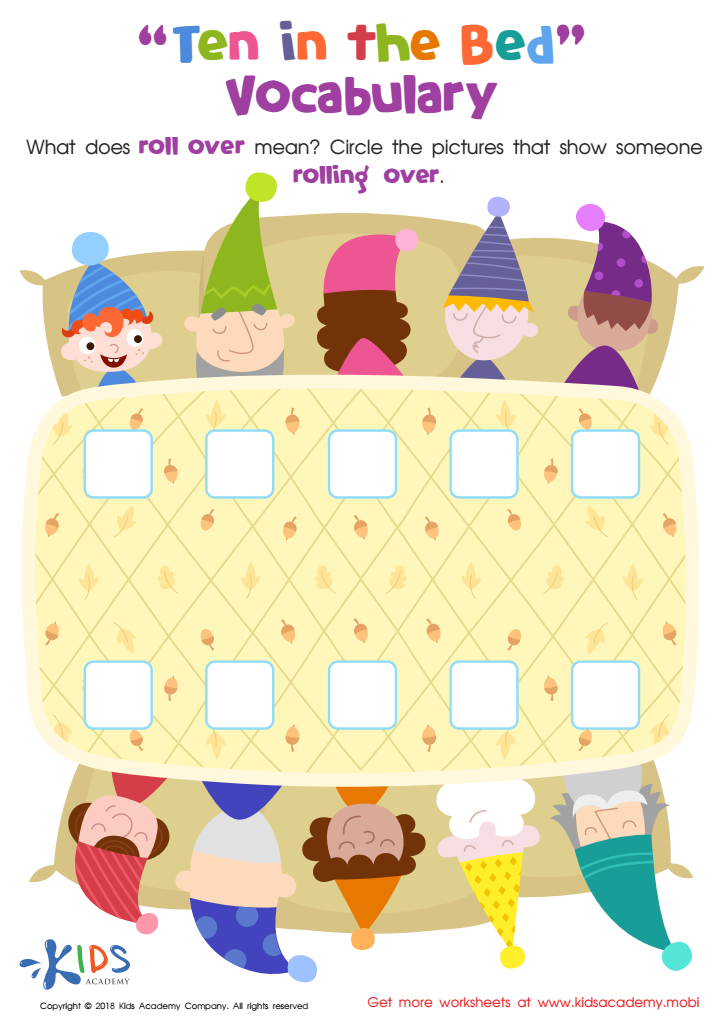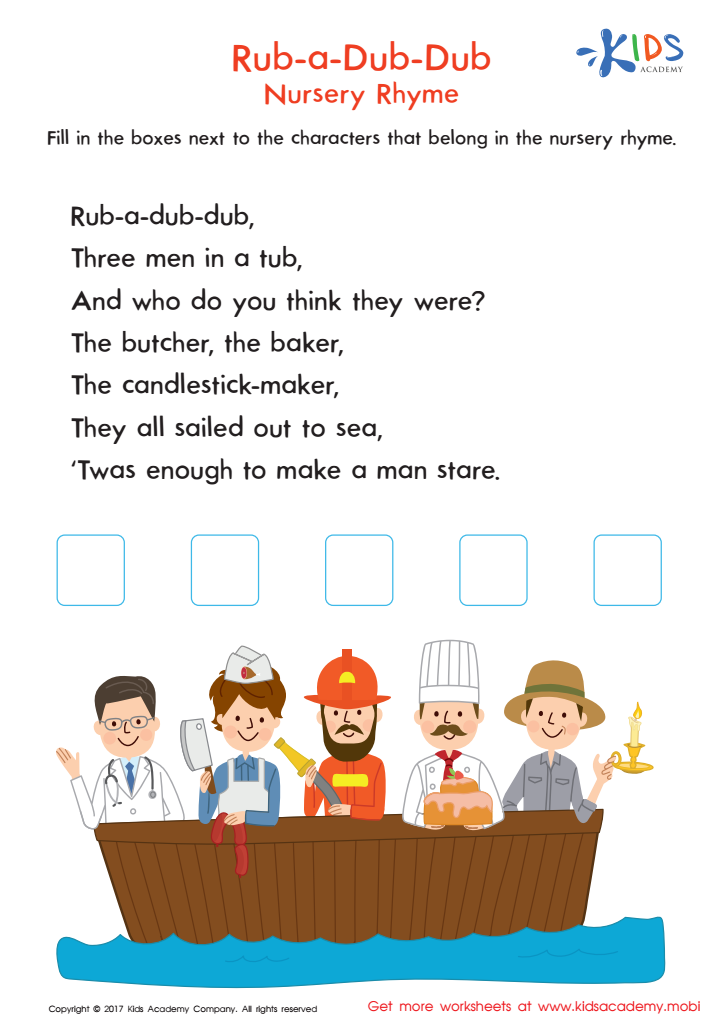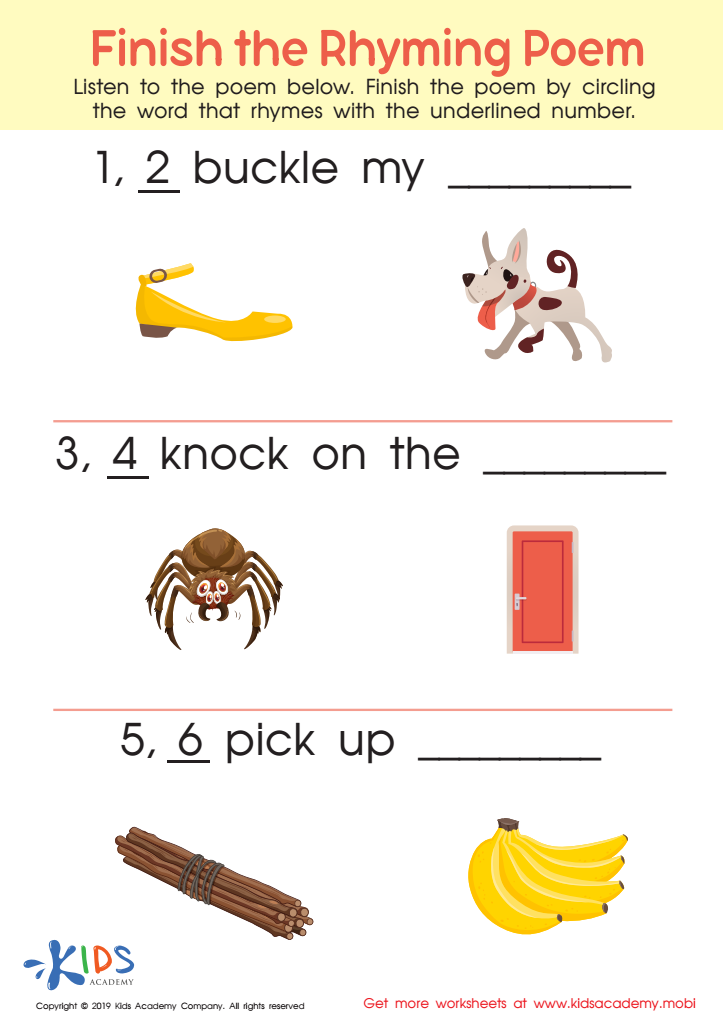Rhyming skills Reading Worksheets for 4-Year-Olds
4 filtered results
-
From - To
Enhance your child's phonemic awareness with our engaging "Rhyming Skills Reading Worksheets for 4-Year-Olds." Designed to foster early literacy, these worksheets are filled with fun and interactive activities that help young learners recognize and produce rhyming words. Perfect for playful learning, each sheet encourages kids to identify patterns in word sounds, boosting their listening skills and reading proficiency. Suitable for both classroom and at-home practice, our rhyming worksheets provide a solid foundation for future reading success. Give your child the gift of joyful learning and watch them thrive with our expertly crafted resources.


Itsy Bitsy Spider Nursery Rhyme PDF Worksheet


Ten in the Bed: Vocabulary Worksheet


Rub a Dub Dub Printable


Finish Rhyming Poem Worksheet
Rhyming skills are a foundational aspect of early literacy development that parents and teachers should care about for 4-year-olds. When children engage with rhymes, they are playing with sounds, which enhances their phonemic awareness—a critical precursor to reading. Phonemic awareness is the ability to hear, identify, and manipulate individual sounds in words. Being attuned to rhymes helps children recognize patterns in language, making it easier for them to decode words when they begin to read.
Rhymes also support vocabulary development, as children are introduced to new words and their meanings in a fun and memorable context. This enriched vocabulary gives them a broader base of language to draw upon as they continue to read more complex texts.
Additionally, rhyming activities are intrinsically motivating and enjoyable for young children. They often involve rhythmic and repetitive structures that make language learning playful and engaging. This positive early exposure to language can foster a love of reading and learning, which is essential for academic success and lifelong learning.
Finally, mastering rhymes can boost children's confidence in their language abilities, making them more willing to explore books and other reading materials. In essence, rhyming skills are a stepping stone that sets the stage for successful literacy acquisition, making them a key focus for parents and teachers of young children.
 Assign to My Students
Assign to My Students






















